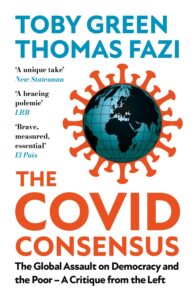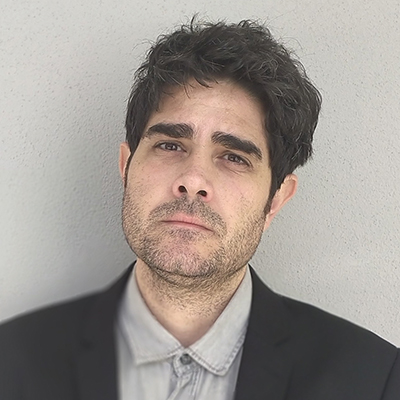Online Censorship: an International Clampdown? w/ Thomas Fazi, Silkie Carlo, Konstantin Kisin & Dr Norman Lewis
Great Smith Street
London
SW1P 3AZ
Join Thomas Fazi, Silkie Carlo, Konstantin Kisin & Dr Norman Lewis for a talk on the decline of freedom of speech.
According to this year’s Global Expression Report, since the turn of the century, 6.3 billion people – living in 81 countries and amounting to 80 per cent of the global population – have experienced declines in freedom of expression.This ‘free speech recession’ has been attributed to various developments. Numerous countries – led by the likes of Brazil, France and Germany, but stretching far and wide to Canada and Australia – have developed measures to criminalise speech, often including political speech that is now interpreted as discriminatory or hateful. Closer to home, Ireland and Scotland have enacted online hate legislation and the UK government has pushed its own Online Safety Bill through parliament.
One favoured ‘excuse’ for censorship is tackling misinformation. Much of the focus is online, where national legislators gain support from supranational bodies such as the EU, via initiatives such as the Digital Services Act (DSA). Regulators are often backed up by clandestine task forces such as the UK’s Counter Disinformation Unit while public broadcasters are increasingly anointed ‘gatekeepers of truth’ asked to identify ‘fake news’ and ‘verify’ what can be heard or seen. After the Twitter Files revealed Big Tech colludes with state agencies to manipulate information through flagging, filtering and ‘shadow-banning’ what can be seen, the Biden-led White House was accused by a federal judge of acting as ‘an Orwellian Ministry of Truth’.
Another justification for censorship is ‘hate speech’. While ‘hate’ is often defined in highly subjective ways, what should be done about the dissemination of outright propaganda, for example, in favour of Hamas?
On the 75th anniversary of the Universal Declaration of Human Rights, where UN member-states asserted the freedom ‘to hold opinions without interference and to seek, receive and impart information and ideas through any media and regardless of frontiers’, what is driving the loss of belief in free expression? Some say that in an online age, misinformation is now the most pressing global challenge, others that fears over populism allied to the culture wars have fostered a loss of faith in the public to be trusted with free expression. Some commentators go so far as to argue that a new all-powerful ‘deep state’, driven by governments and Big Tech, has created a ‘Censorship Industrial Complex’.
Are we right to talk about global trends or are there significant differences across countries – and if so, what are the most important developments? With countries such as Ireland making even private possession of offensive material a crime and the UK’s Online Safety Bill potentially opening the floodgates to banishing private chat by outlawing end-to-end encryption messaging services such as WhatsApp, how worried should we be about the consequences for privacy? Does the new ease of online accessibility justify the new strict regulations and penalties? How should we balance concerns about safety and security with protecting freedom? How best can we make the case for free expression to overcome the international drive towards censorship?
About the speakers
Silkie Carlo: director, Big Brother Watch; co-author, Information Security for Journalists.
Thomas Fazi: journalist and writer; author, The Battle for Europe: how an elite hijacked a continent – and how we can take it back and The Covid Consensus: the Global Assault on Democracy and the Poor – a Critique from the Left.
Konstantin Kisin: satirist; podcaster, TRIGGERnometry; author, An Immigrant’s Love Letter to the West.
Dr Norman Lewis: visiting research fellow, MCC Brussels; co-author, Big Potatoes: the London manifesto for innovation.
About the book
The most comprehensive critique yet of the devastating ‘War on Covid’, showing how to ensure it never happens again.
During the first years of the pandemic, the political mainstream agreed that ‘following the science’ with hard lockdowns and vaccine mandates was the best way to preserve life. But social science reveals the true human cost of this policy.
The Covid Consensus provides an internationalist-left perspective on the world’s Covid-19 response, which has had devastating consequences for democratic rights and the poor worldwide. As the fortunes of the richest soared, nationwide shutdowns devastated small businesses, the working classes and the Global South’s informal economies. Gender-based violence surged, and the mental health of young people was severely compromised. Meanwhile, unprecedented health restrictions prevented participation in daily life without proof of vaccination.
Toby Green and Thomas Fazi argue that these policies grossly exacerbated existing trends of inequality, mediatisation and surveillance, with grave implications for the future. Rich in human detail, The Covid Consensus tackles head-on the refusal of the global political class and mainstream media to report the true extent of the erosion of democratic processes and the socioeconomic assault on the poor. As the world emerges from the pandemic to confront new modes of monitoring and control, this left-wing reappraisal of global Covid policies exposes the injustices and political failings that have produced the biggest crisis since the Second World War.
